Comrade Nguyen Trong Nghia, Member of the Political Bureau, Secretary of the Central Committee of the Party, Head of the Central Propaganda Department, and Head of the Steering Committee for External Information Work, presents awards to winning collectives and individuals at the 10th National Award Ceremony for External Information, December 3, 2024. (Photo: VNA)
The strength of the Vietnamese nation and the strength of the new era.
Power is a central concept in politics and international relations. Most international interactions are political or have an impact on politics in order to create power and influence over one or more other entities. In this, states are said to often “seek to maximize relative power over other states, create a balance of power or seek to create a balance of power” (1) .
The combined strength of a nation is a collection of material and spiritual elements, tradition and modernity, in which the righteousness of the nation and the great national unity are of special importance (2) . Professor Joseph Nye - former Dean of the Kennedy School of Public Administration, Harvard University (USA), former Assistant Secretary of Defense of the United States - when discussing the strength of nations, summarized it into two forms: "hard power" and "soft power". "Hard power" is a quantifiable category, a tangible resource related to economic and military strength; "soft power" is the sum of intangible factors, such as culture, ideology and institutions of a nation. "Soft power" is "the ability to create attraction, appeal, and draw other countries to 'voluntarily' change their behavior and policies to suit what one desires, instead of forcing them through economic and military power" (3) .
Vietnam is a country with a long history, traditions, and strong national strength to fight and protect its independence throughout thousands of years of nation-building and national defense. Vietnam's "soft power" stems from its cultural attractiveness, its system of standard values that appeal to people, and its national foreign policy resources (4) . Specifically:
Regarding culture: The attractiveness of Vietnamese culture comes not only from its unique identity, but also from its diversity, richness, and ability to absorb external cultural elements. Vietnamese culture is "the result of thousands of years of creative labor, tenacious struggle to build and defend the country of the Vietnamese ethnic communities, the result of exchange and absorption of the essence of world civilizations to constantly improve itself. Vietnamese culture has nurtured the soul, spirit, and character of Vietnam, making the glorious history of the nation shine brightly" (5) . Former Prime Minister Pham Van Dong once affirmed: Vietnamese culture is the red thread running through the entire history of the Vietnamese nation, creating a powerful vitality, helping the Vietnamese ethnic community overcome countless storms and rapids that seemed insurmountable, to constantly develop and grow stronger, writing pages of history by resilience in adversity, by heroic spirit in defending and building the country; “Cultural essence... is the essence of the nation, the most precious thing that today all Vietnamese people are proud to inherit and develop” (6) . Through many historical events and ups and downs, influenced by many different cultures, Vietnamese culture has not been “assimilated”, but has maintained its identity and shown strong vitality in its ability to adapt flexibly and creatively.
Regarding ethical values: Vietnam's "soft power" lies in its people-pleasing ethical values, such as its indomitable will, its persistent spirit in the struggle for national independence, its tradition of community solidarity, and its willingness to share and help each other in times of hardship; along with its love for peace, its humane nature, its harmony, and its tolerance... Among these, patriotism and national spirit are among the most proud values. Vietnamese history shows that all victories come from the unity of the people. The ideology of "the people are the foundation," from the time of our ancestors to the era of Ho Chi Minh, has always been placed at the forefront of all decisions. This has helped Vietnam maintain its independence, unify the country, and win wars to protect national independence and freedom. These values are not only reflected in history but also in modern times, aiming for the common good of the entire nation. Promoting spiritual values to create strength, inner power, and crucial motivation is an essential and decisive requirement for the success of the current process of reform and international integration, and for building and protecting the country.
Regarding foreign policy resources: Vietnam's foreign policy has always reflected the aspiration for peace, cooperation, and respect for differences in a diverse world. Throughout history, and up to the Ho Chi Minh era, Vietnam has consistently demonstrated a spirit of tolerance, a willingness to be a friend, a reliable partner, and a responsible partner to all countries in the international community. Implementing an independent, self-reliant, diversified, and multilateral foreign policy has helped Vietnam build the image of a dynamic and peaceful developing nation. From having no name on the world map, Vietnam has now established diplomatic relations with nearly 200 countries and territories in different continents, has a “special” relationship with 3 countries (7) , a “comprehensive strategic partnership” with 12 countries (8) , a “strategic partnership” with 8 countries (9) , a “comprehensive partnership” with 14 countries (10) , economic and trade relations with 230 countries and territories... It participates increasingly actively in regional and global multilateral organizations and forums, including the United Nations, the World Trade Organization (WTO), the Asia-Pacific Economic Cooperation Forum (APEC), the Association of Southeast Asian Nations (ASEAN), the ASEAN Inter-Parliamentary Assembly (AIPA), the Asia-Europe Cooperation Forum (ASEM)... It has successfully organized many international conferences and negotiations, such as the Conference of the highest level Vietnam has achieved high levels of international cooperation, successfully hosted APEC in 2006 and 2017, held the ASEAN chairmanship in 2010 and 2020, served as a non-permanent member of the United Nations Security Council for the terms 2008-2009 and 2019-2020, and hosted the US-North Korea summit in 2019. Through cultural diplomacy and other diplomatic channels, the world has learned more about a beautiful, hospitable, resilient, peaceful, and loyal Vietnam with a thousand years of civilization; Vietnam's prestige and influence on the international stage are increasing; and Vietnam's mark is becoming increasingly profound. “The soft power” of Vietnam in general, and of its culture in particular, is increasingly multiplied, becoming one of the driving forces promoting socio-economic development, so that “Our country has never had such a foundation, potential, position and international prestige as it does today” (11) .
The Power of the New Era Top of Form These are the major trends of the world, the main currents of humanity (12) . More specifically, these are the progressive trends in all fields of politics, economics, science and technology, etc., along with the forces that determine the direction of peace, democracy, equality and prosperity of nations (13) . In today's era, power comes from: 1- The information technology revolution, artificial intelligence (AI), blockchain technology, and other advanced technologies are rapidly changing every field, from economics and society to education and healthcare. Technology not only drives economic development but also profoundly influences how people communicate, work, and live; 2- Rapid shifts in innovative thinking following the 2008 global economic crisis have spurred countries to focus on creativity, innovation, entrepreneurship, and adaptability; 3. Globalization continues to be a crucial factor in the 21st century, as countries and economies become increasingly interconnected, expanding trade, cultural, and scientific-technological relationships. This creates opportunities, but also presents numerous challenges, leading to increasing interdependence among nations.
"Soft power" (culture, education, and democratic, national, and ethnic values) is becoming increasingly important in building a national image, thereby creating opportunities, strengthening trust, attracting resources for national development, building influence, and elevating international standing. Achieving the goal of building a national image through "soft power" resources is also facilitated by the increasingly developed media system. However, in reality, leveraging the advantages and conveniences of social media in information and propaganda work can meet the public's need for rapid information access and enhance national influence. But this also becomes a "double-edged sword" due to the risks of cybersecurity, the spread of harmful and toxic information, and fake news in a short time. More seriously, hostile and reactionary forces may exploit social media to distort and undermine the Party, the State, and the regime, incite riots and protests, and disrupt public security and order. Overall, these factors not only reflect the strength of the current era but also represent a synergistic opportunity when combined with the strength of the Vietnamese nation.
Reporters at work at an event_Source: Archival material
Methods of using external communication to enhance national overall strength.
According to the view of scholar David A. Baldwin of Princeton University (USA), countries can increase their power influence through four methods: 1- Symbolic method (the attractiveness of standardized symbols and information through discourses, propaganda, stories); 2- Economic method; 3- Military method; 4- Diplomatic method (including diplomatic practice and forms of negotiation and contact) (14) .
From this perspective, external communication is seen as the primary tool for implementing symbolic methods and plays a crucial role in diplomacy. Simultaneously, economic and military approaches need to be closely integrated with symbolic and diplomatic methods to achieve the stated objectives.
Therefore, external communication plays an important role in disseminating and competing for influence and power in international relations. Symbolic methods and diplomatic methods are the two main contents of external communication. To achieve the goal of symbolic methods, mass media (books, newspapers, television, radio, new media) or direct communication channels through negotiations and contact are used to persuade the international public (public diplomacy). Based on the characteristics and functions of international communication, it can be seen that external communication is the main "soft power" tool to create influence at all three levels: global, national and individual (15) .
External communication plays a two-way role: domestic information reaching the world and international information flowing into the country. These are government communication activities aimed at both the public and foreign governments; they are purposeful activities by a nation directed at the governments and people of other countries to provide comprehensive information about its own country, aiming to build a desired national image. External communication is a fairly common method worldwide to contribute to increasing national strength. Furthermore, in the current context, the subjects of external communication have expanded beyond the scope of "government or state agencies," encompassing individuals such as leaders and influential intellectuals (scientists, writers, thinkers, cultural figures, and prominent artists).
For Vietnam, with the aim of increasing the amount of positive and accurate information about Vietnam reaching the international community and vice versa, external communication not only analyzes, evaluates, explains, and selects meaningful information for domestic dissemination, but also serves as a bridge to enhance mutual understanding between Vietnam and its partners. It is a crucial force in promoting and enhancing Vietnam's prestige and position, contributing to attracting resources for national development. Currently, Vietnam's external communication work enjoys many advantages due to its extensive diplomatic relations and an increasingly modern, fast, and timely information and communication infrastructure connecting Vietnam with the world. Furthermore, Vietnam's external communication force is growing in number and diversity, ranging from state agencies at all levels to major media outlets and media organizations.
Some suggestions for Vietnam in enhancing the role of external communication in the future.
In general, with the benefits that the digital society brings, countries also face many information wars from many sides, making it difficult to verify the authenticity. Furthermore, the application of AI technology in communication is now quite common, bringing advantages in creating many rich media products, but also posing difficulties for foreign communication work when people use AI for inappropriate purposes. In the trend of globalization and digital transformation having profound impacts on each country, the 13th Party Congress set the task of "innovating content, methods, and improving the effectiveness of foreign propaganda work" (16) . On the foundation of the achievements already made, deeply recognizing the limitations and weaknesses, in order for foreign communication work to be more effective in the future, it is necessary to focus on the following main contents:
Firstly, continue to thoroughly understand, concretize and effectively implement the Party's policy on external information and communication work, aiming to "strongly promote the national image and strengthen the overall strength of the country" (17) . Raise the awareness and responsibility of Party committees, Party organizations, governments at all levels, leaders, cadres, Party members and the people, especially those agencies and organizations assigned to do external information work; ensure the highest national interests, in accordance with the relationship between Vietnam and other countries, the United Nations Charter, and international law (18) .
Secondly, continuously leverage the strengths of foreign affairs journalism – a crucial force in foreign communication – in promoting and disseminating the image of Vietnam to the public and the international community amidst the rapid development of digital technology; focus on using "social listening" technology to gather information and build appropriate content for image promotion; create concise and impactful policy messages, "media stories" about Vietnam and its people, "create trends," and "capture trends" on social media; and enhance the use of vivid and easily understandable digital clips, videos, images, and charts.
Thirdly, promote the use of new media tools in connecting foreign contact activities, helping to gather and unleash resources, creating social consensus to achieve common goals through reporting, explaining and persuading domestic and foreign publics. The connecting role is a fundamental characteristic of information (19) to build strength, because information connection helps mobilize social resources more effectively. Developing science and technology towards enabling people to master technology, effectively use new media in improving cultural capital, cultivating good cultural values, building a healthy cultural environment, contributing to enhancing the nation's "soft power".
Fourth , we need to build a comprehensive strategy for promoting the country's image, mobilizing the joint efforts of the entire political system both domestically and internationally. Currently, many countries around the world have developed communication and brand promotion strategies very early on, implementing them on a large scale and successfully; mechanisms and policies are regularly supplemented, updated, and perfected to suit the practical development of the country. Building a comprehensive strategy, integrating cultural diplomacy into the implementation of socio-economic development strategies and cultural development strategies, etc., will create synergy in the socio-economic development goals of localities and the entire country. This will be the basis for promoting Vietnam's image to the world in a systematic and effective manner.
Fifth, continue promoting the cultural values and image of Vietnam and its people, with a focus on spreading the progressive and noble values, ideas, and worldviews of the Vietnamese nation, especially through the image and ideological values of President Ho Chi Minh and other prominent figures honored by the United Nations Educational, Scientific and Cultural Organization (UNESCO). This will help Vietnam build and maintain good relationships with other countries through mutual understanding and respect, creating a foundation for international cooperation and trade. Alongside official diplomatic activities, integrate sideline activities (film screenings, art exhibitions, local product introductions, etc.) linked to the goal of communicating about Vietnam and its people from tradition to modernity. Expand the establishment of Vietnamese language and culture centers abroad, disseminating Vietnamese values to overseas Vietnamese communities across generations by preserving the language and culture. A positive image of Vietnam can build confidence among international investors and businesses, while stimulating economic development by attracting investment capital and business cooperation.
Sixth, strengthen communication in education, fundamentally and comprehensively reform the education and training system, from family and school to society, starting from the root of the problem—human factors, personal ethics—to public service ethics. Public service ethics is the result of individual awareness and personal ethical culture. Personal ethical culture is considered the origin of cultural diplomacy, and each citizen is an ambassador of the national culture. It can be seen that this is a series of values that ultimately all point to a deeper cause: education—an issue not only for society or the education and training system, but also for each family—the cell of society. With correct understanding, each citizen will be a symbol, a "channel" of communication contributing to the strong dissemination of the beauty of Vietnamese culture to the global community.
In summary, external communication today is not merely a means of communication, but also a crucial tool for each nation to promote its image and brand. Therefore, the content conveyed through external media channels needs to closely adhere to foreign policy guidelines and, especially, maintain consistency across different content to effectively deliver the value of the foreign policy message. In practice, there are times when there is a lack of uniformity in the content of foreign policy messages across various channels. Furthermore, consistency is also reflected in the visual identity across media platforms; the information conveyed must be consistent in terms of message, content, and distinctive design symbols. This not only helps to boost brand recognition but also increases accessibility and enhances the message's influence on the international public. In other words, to optimize, the message must have consistency in both content and form, and especially must possess a distinct identity so that every international audience member, upon receiving the message, recognizes that it comes from Vietnam and represents Vietnamese values. Therefore, clearly defining the role and effectively promoting the role of external communication in combining national strength and the strength of the times is an objective and necessary requirement to make a worthy contribution to the implementation of the foreign policy guidelines of the 13th National Congress of the Party, and the upcoming 14th National Congress, effectively serving the cause of building and protecting the socialist Vietnamese Fatherland in the new situation.
-----------------
(1), (14) David A. Baldwin: “Power and International Relations” in Carlsnaes - W., Risse-Kappen - T., Risse - T., Nguomons - BA (Eds.): Handbook of International Relations , Sage , 2002
(2) Vu Duong Huan: Ho Chi Minh's thought on foreign affairs and Vietnamese diplomacy, Hong Duc Publishing House, Hanoi, 2022, p. 56
(3) J. Nye: “Think Again: Soft Power”, EP, February 23, 2006, https://foreignpolicy.com/2006/02/23/think-again-soft-power/
(4) Le Hai Binh - Ly Thi Hai Yen: “The role of external information work in promoting Vietnam's soft power resources in the new situation”, International Studies Journal, No. 1 (124), March 2021
(5) Documents of the Fifth Conference of the Central Committee of the Eighth Party Congress, National Political Publishing House, Hanoi, 1998, p. 40
(6) Pham Van Dong: Culture and Innovation, National Political Publishing House, Hanoi, 1994, p. 17
(7) Laos, Cuba and Cambodia
(8) China (2008), Russia (2012), India (2016), South Korea (2022), United States (2023), Japan (2023), Australia (2024), France (2024), Malaysia (2024), New Zealand (2025), Indonesia (2025), Singapore (2025)
(9) Spain (2009), UK (2010), Germany (2011), Italy (2011), Thailand (2013), Philippines (2015), Brazil (2024), Czech Republic (2025)
(10) South Africa (2004), Chile (2007), Venezuela (2007), Argentina (2010), Ukraine (2011), Denmark (2013), Myanmar (2017), Canada (2017), Hungary (2018), Brunei (2019), Netherlands (2019), Mongolia (2024), UAE (2024), Switzerland (2025)
(11), (16), (17) Documents of the 13th National Congress of Delegates , National Political Publishing House, Hanoi, 2021, Vol. I, pp. 25, 164 - 165, 155
(12) Nguyen Dy Nien: Ho Chi Minh's Diplomatic Thought, National Political Publishing House, Hanoi, 2008
(13) Vu Duong Huan: Ho Chi Minh's thought on foreign policy and Vietnamese diplomacy, op. cit., p. 57
(15) Ly Thi Hai Yen (Editor), Communication and International Relations, National Political Publishing House, Hanoi, 2020, p. 177
(18) Conclusion No. 57-KL/TW, dated June 15, 2023, of the Politburo, "On continuing to improve the quality and effectiveness of external information work in the new situation"
(19) Yoval Noah Harari: Nexus, Mega Plus and The World Publishing House, 2024, p. 49
Source: https://tapchicongsan.org.vn/web/guest/nghien-cu/-/2018/1109402/phat-huy-vai-role-of-foreign-media-in-combining-national-strength-and-the-strength-of-the-times.aspx


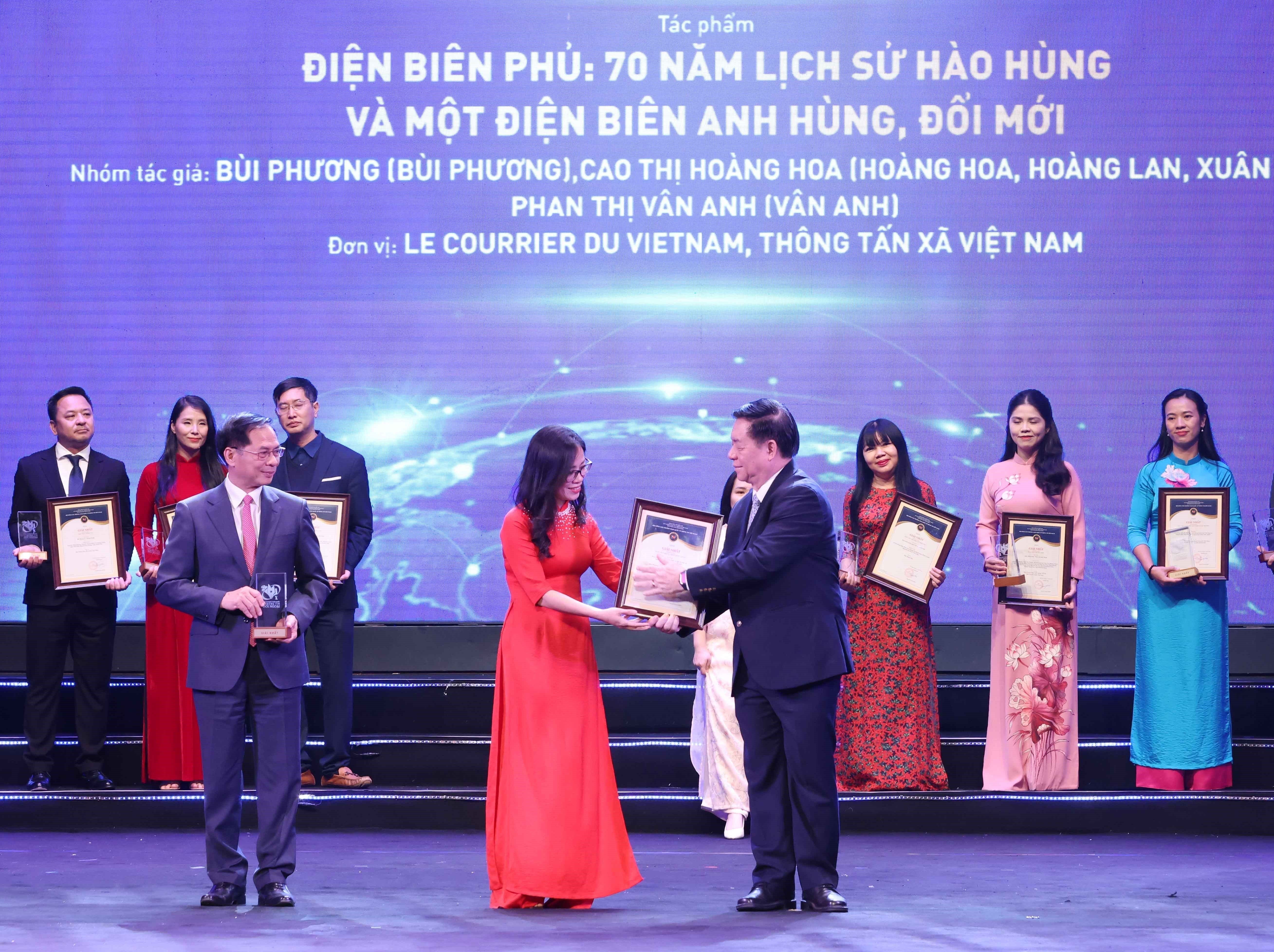
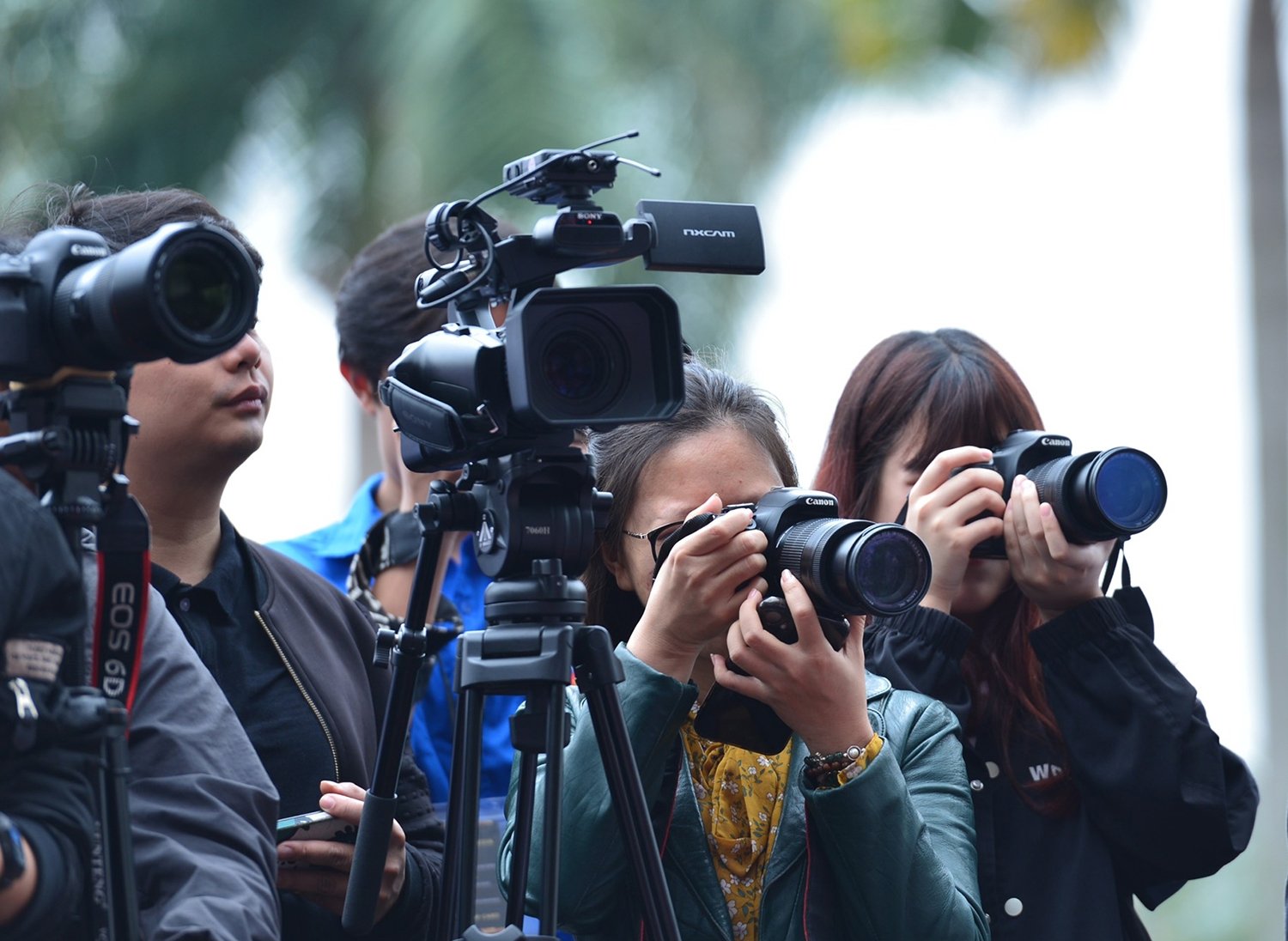
![[Photo] Closing Ceremony of the 10th Session of the 15th National Assembly](/_next/image?url=https%3A%2F%2Fvphoto.vietnam.vn%2Fthumb%2F1200x675%2Fvietnam%2Fresource%2FIMAGE%2F2025%2F12%2F11%2F1765448959967_image-1437-jpg.webp&w=3840&q=75)
![[Photo] Prime Minister Pham Minh Chinh holds a phone call with the CEO of Russia's Rosatom Corporation.](/_next/image?url=https%3A%2F%2Fvphoto.vietnam.vn%2Fthumb%2F1200x675%2Fvietnam%2Fresource%2FIMAGE%2F2025%2F12%2F11%2F1765464552365_dsc-5295-jpg.webp&w=3840&q=75)




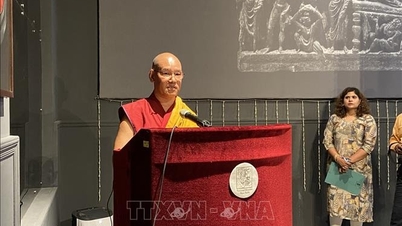



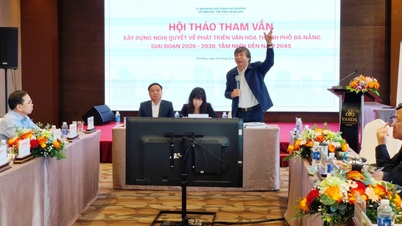

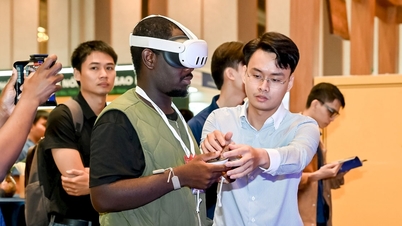

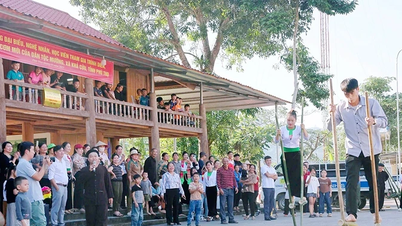

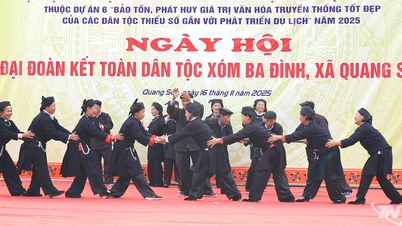

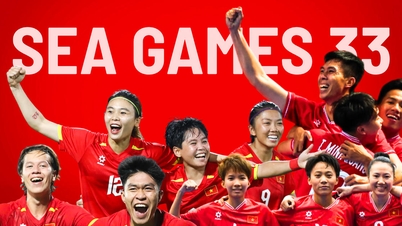

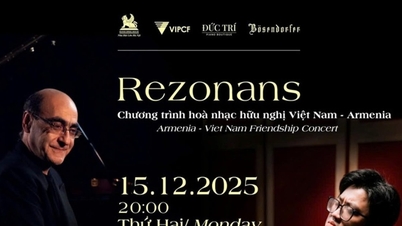








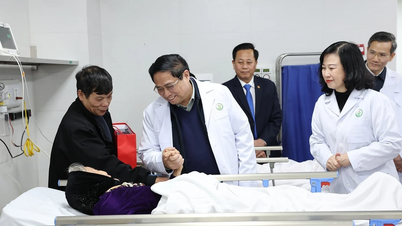
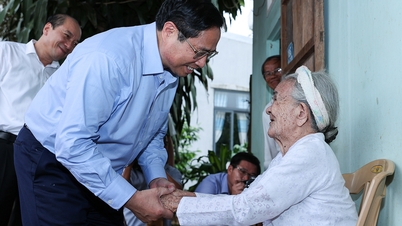
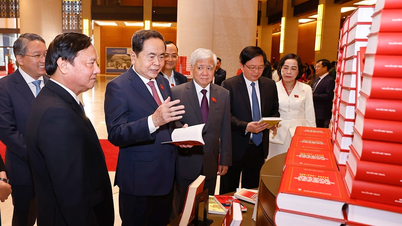

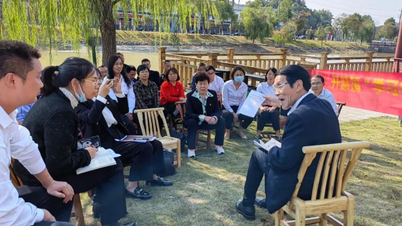
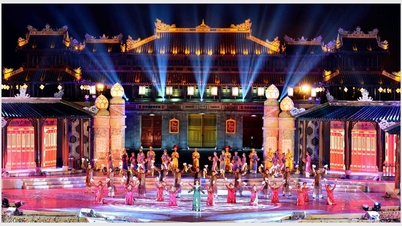












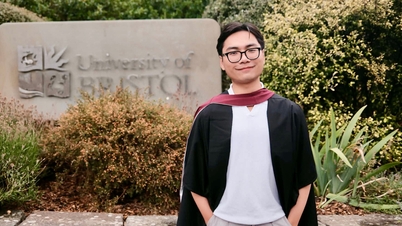
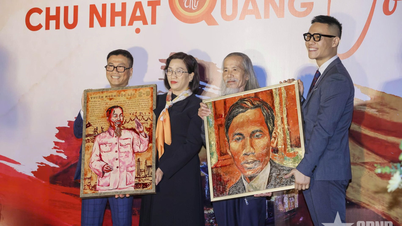








![[OFFICIAL] MISA GROUP ANNOUNCES ITS PIONEERING BRAND POSITIONING IN BUILDING AGENTIC AI FOR BUSINESSES, HOUSEHOLDS, AND THE GOVERNMENT](https://vphoto.vietnam.vn/thumb/402x226/vietnam/resource/IMAGE/2025/12/11/1765444754256_agentic-ai_postfb-scaled.png)












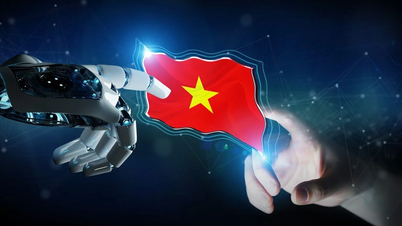
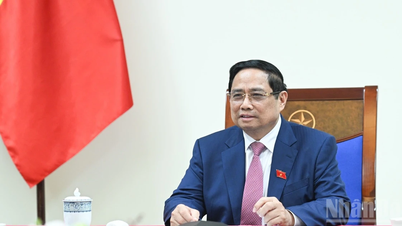
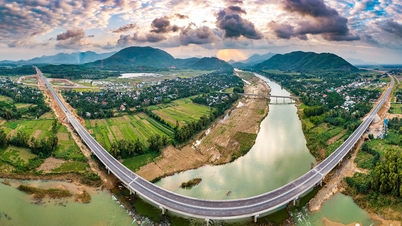
















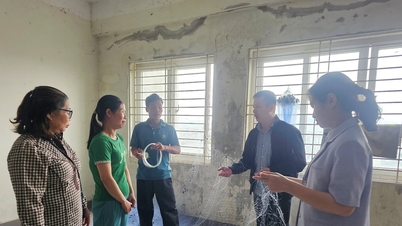

















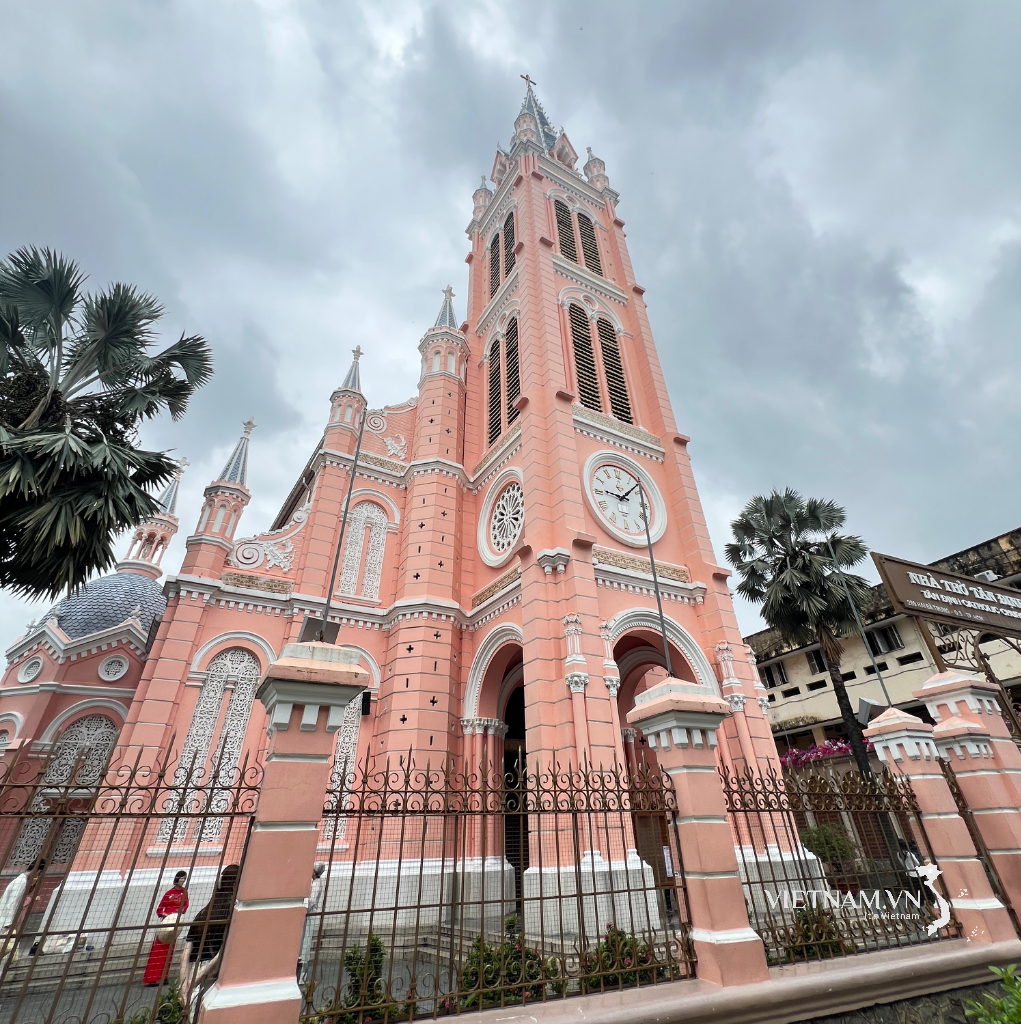
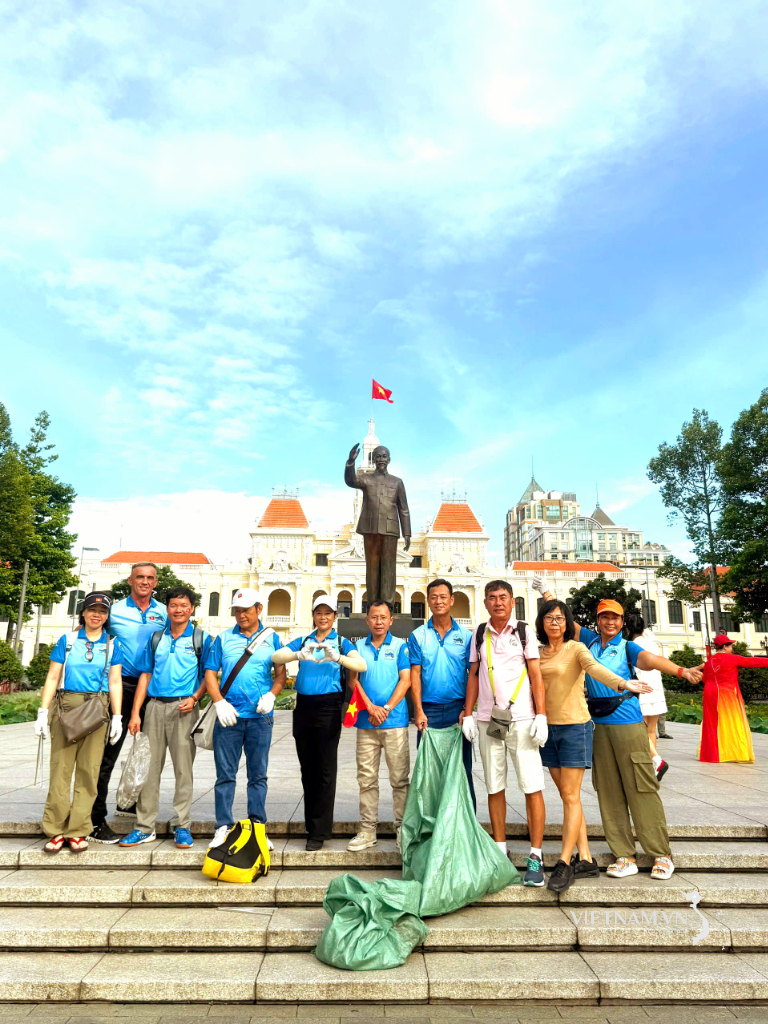
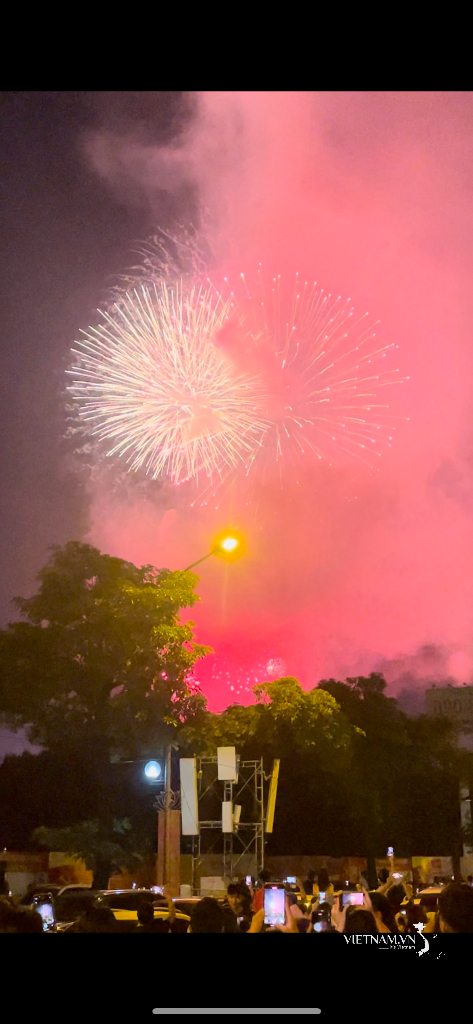
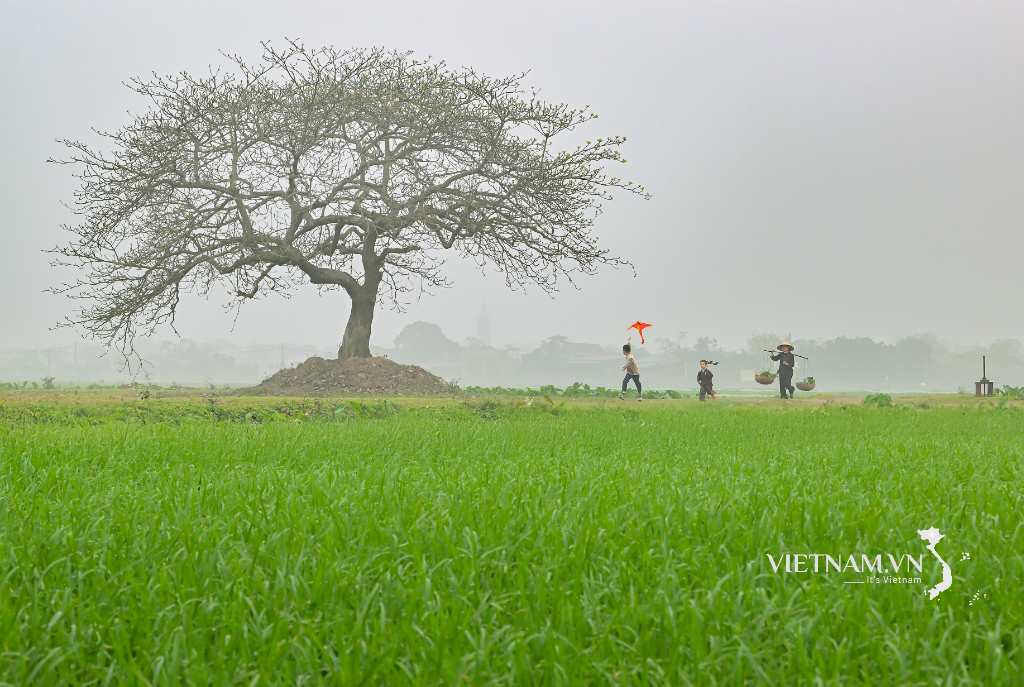
Comment (0)